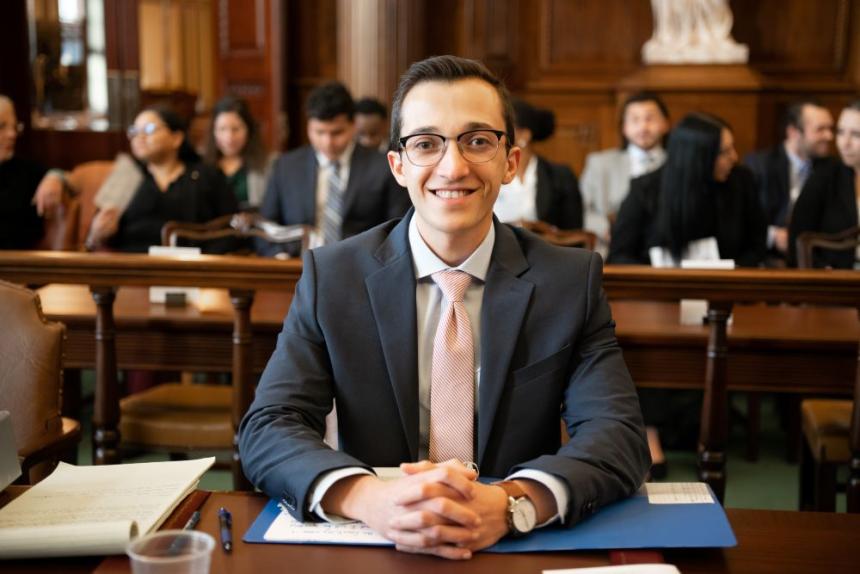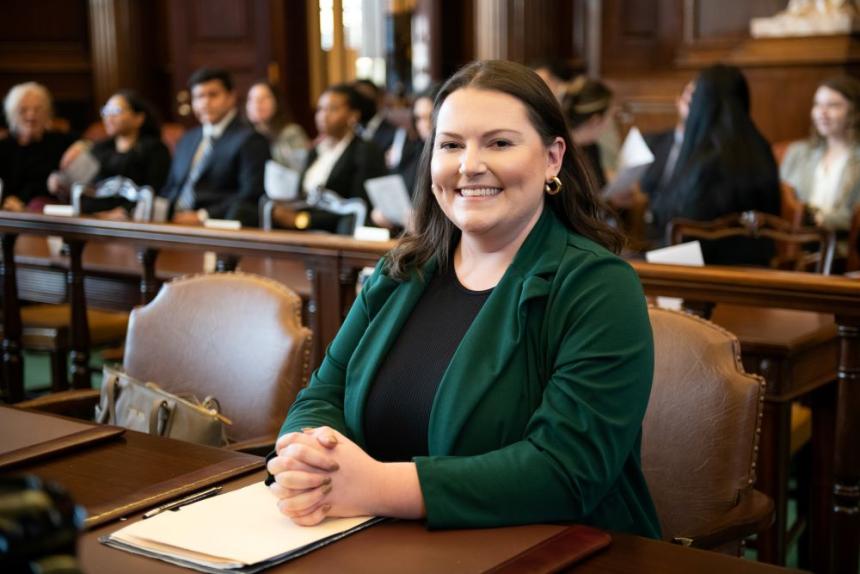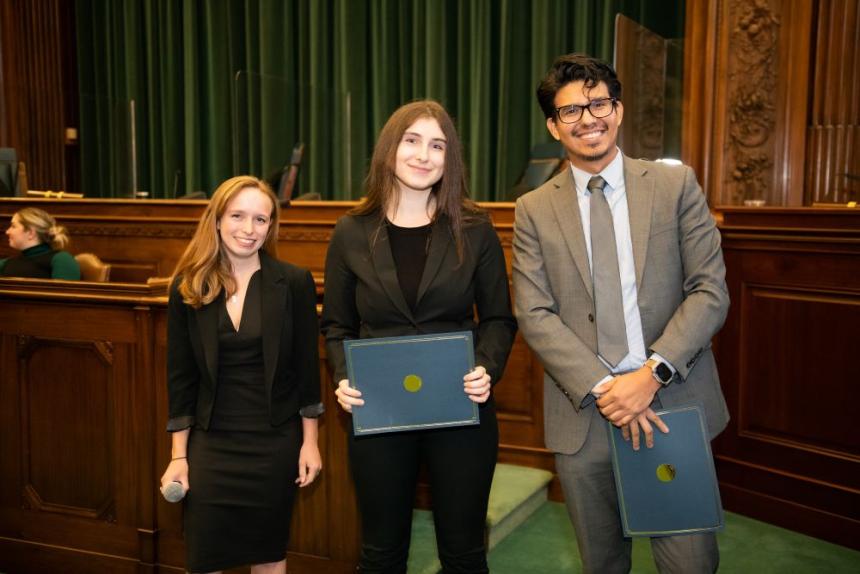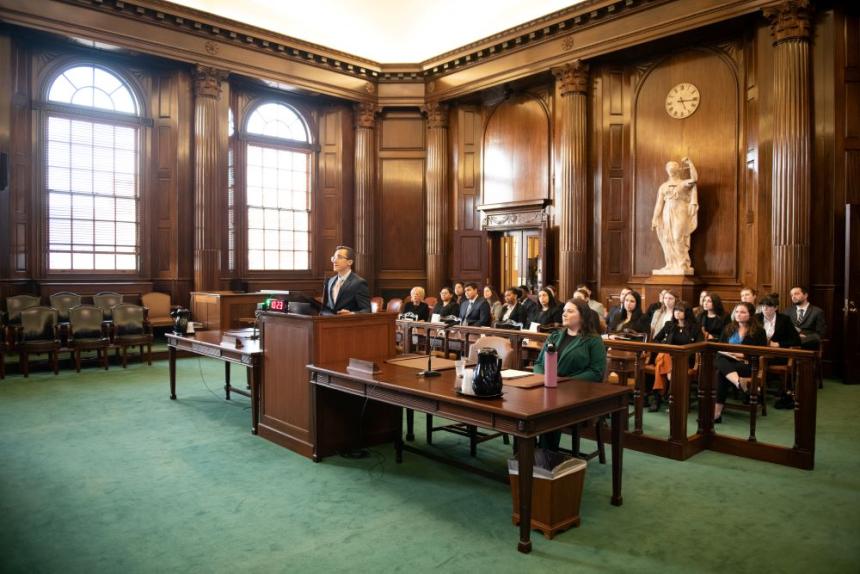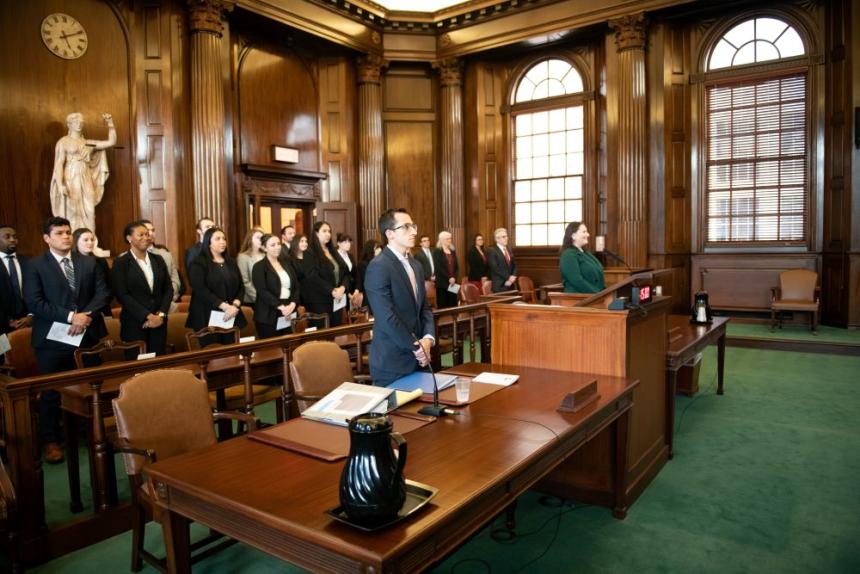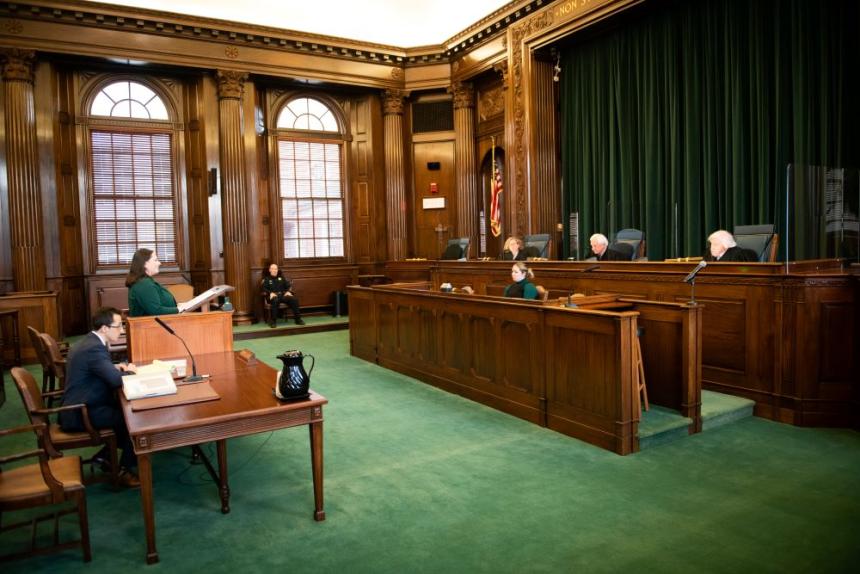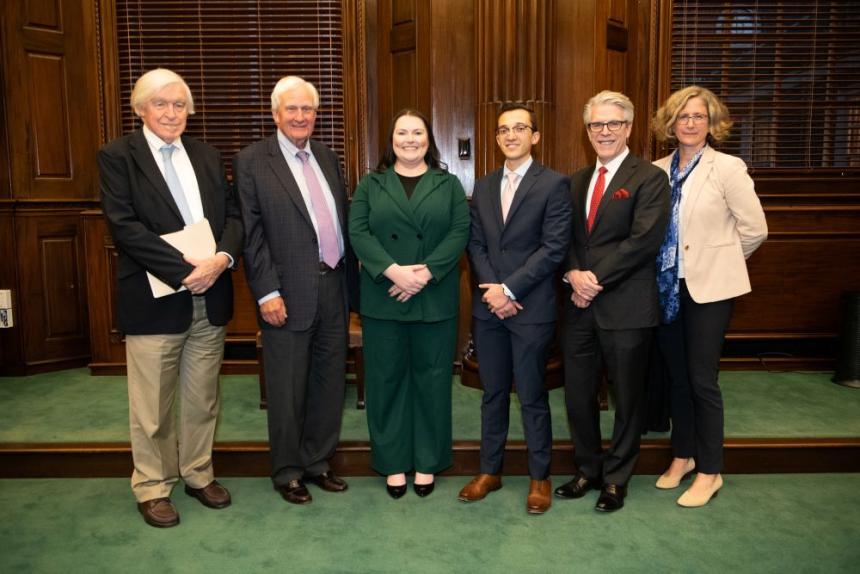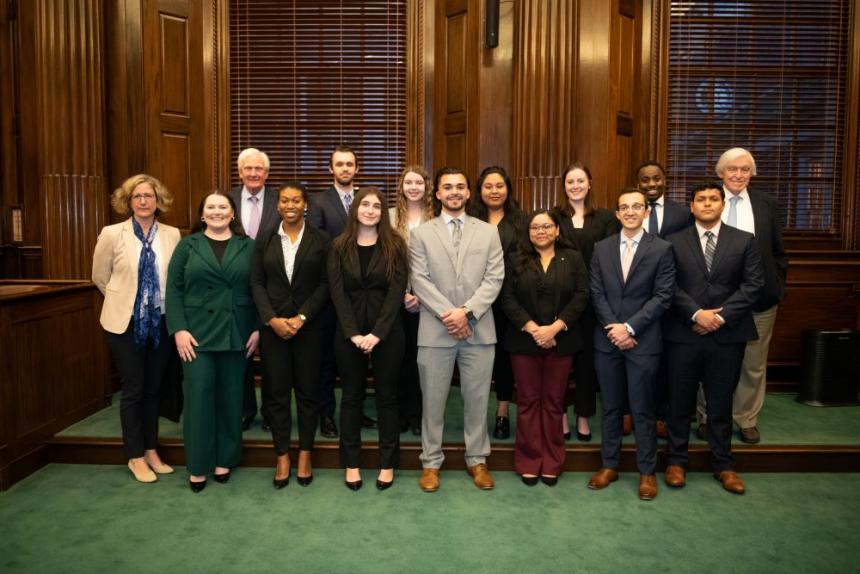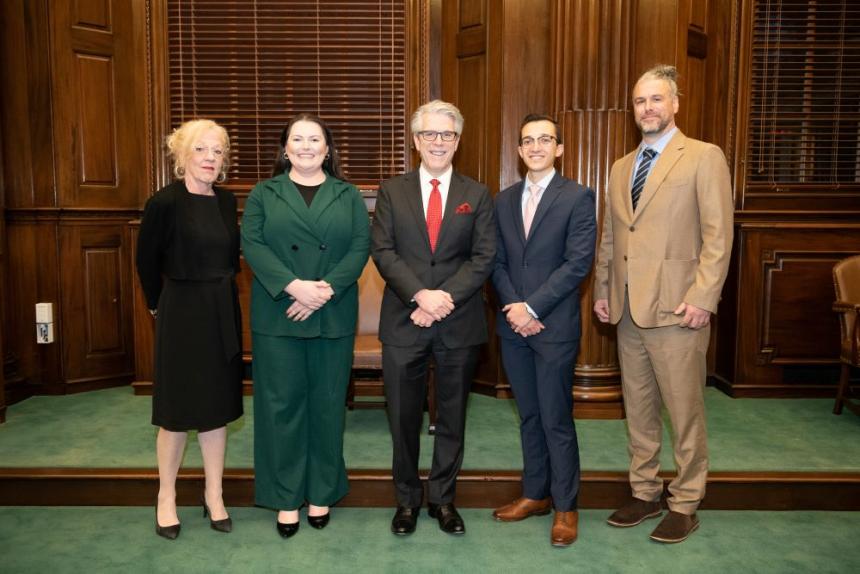Esther Clark Competition
The Moot Court Board organizes and administers the annual intra-scholastic Esther Clark Moot Court Competition. Second-year Moot Court Board members compete in the Esther Clark Competition to maintain their position on the Moot Court Board. The Esther Clark Competition requires advocates to author an appellate brief and compete in a series of arguments against their fellow second-year Moot Court Board members. The final round of the Esther Clark Competition is argued before the justices of the Rhode Island Supreme Court, who ultimately decide the winner.
28th Annual Esther Clark Competition
Photos from the 28th Annual Esther Clark Competition held at the Rhode Island Supreme Court on October 26, 2023
28th Annual Competition Winners
The Esther Clark Competition is named after a 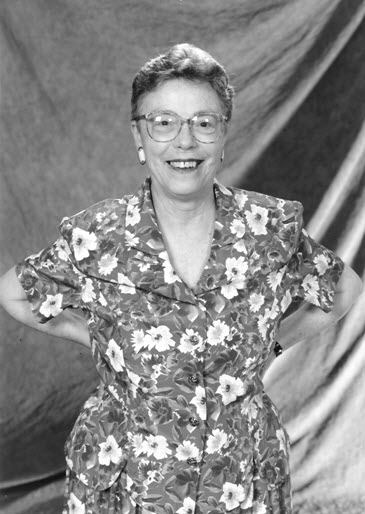
deceased RWU Law professor, who joined Roger Williams Law faculty during its second year and taught Criminal Procedure and Evidence. Professor Clark's impact on students went well beyond the classroom. Students voted Professor Clark “outstanding faculty member of the year” five times throughout her teaching career at Roger Williams. She believed that teaching was a twenty-four hour a day passion that went well beyond when students graduated. Professor Clark continued to assist her students after graduation.
Esther Clark graduated law school from Rutgers University Law in 1955. She was one of only two women in her class. She was also an associate editor of Law Review at the law school. After her graduation from law school, Clark became a criminal trial attorney at a time when there were very few women in that field.
Professor Clark’s determination and passion helped get RWU Law to where it is today. She helped the school grow and more importantly, helped pave the way for women in the profession of law. In recognition to her contributions to the School of Law, the Moot Court Board named the 2L Competition in her memory.
The following lists competition winners from 2007 to present:
2007
- Winner: Tyler J. Smith
- Best Brief: Kyle Rocha
2008
- Winner: Craig Graham
- Best Brief: Hala Furst
2009
- Winner: John Meara
- Best Brief: Robert Cavanagh
2010
- Winner: Tolulope Kevin Olasanoye
- Best Brief: Ezra Willey
2011
- Winner: Nicholas Nybo
- Best Brief: Christa Harris
2012
- Winner: Antonio Massa Viana
- Finalist: Thomas Pagliarini
- Best Brief: Jeffrey Sheehan
2013
- Winner: Daniel Reilly
- Finalist: Sydney Kirsch
- Best Brief: Christopher Fragomeni
2014
- Winner: Brett Beaubien
- Finalist: John Ryan Henry
- Best Brief: Edward Pare
2015
- Winner: Katherine Berling
- Finalist: Lindsey Langella
- Best Brief: David Revens
2016
- Winner: Sean Clough
- Finalist: Grace Dzilenski
- Best Brief: Alexandra Rawson
2017
- Winner: Ryan Gallagher
- Finalist: Allison Regan
- Best Brief: Brenna Riley
2018
- Winner: Crystal Peralta
- Finalist: Luis Vargas
- Best Brief: Luis Vargas
- Best Overall Oral Advocate: Caitlyn Forrester-Johnson
2019
- Winner: Erin Ferry
- Finalist: Amanda Nagim-Williams
- Best Brief: Celina Andrade
- Best Overall Oral Advocate: Sophia Weaver
2020
- Winner: Jill Magnus
- Finalist: Amanda Tramonte
- Best Brief: Amanda Tramonte
- Best Overall Oral Advocate: Jill Magnus
2021
- Winner: Noelle Soares
- Finalist: David Braga
- Best Brief: Julissa Arce
- Best Overall Oral Advocate: Penelope Murphy
2022
- Winner: Pia Piscitelli
- Finalist: Morgan Alger
- Best Brief: Michaela Conley
- Best Overall Oral Advocate: Aicha Elola
- Best On and Off Brief: Hilary Levey Friedman
2023
- Winner: Elijah Santos
- Finalist: Julia Keefe
- Best Brief: Elijah Santos
- Best Overall Oral Advocate: Elijah Santos
- Best On and Off Brief: Elijah Santos
Images from the 27th Annual Esther Clark Competition in 2022
Images from the 26th Annual Esther Clark Competition in 2021
Images from the 25th Annual Esther Clark Competition in 2020
Images from the 24th Annual Esther Clark Competition in 2019
Images from the 23rd Annual Esther Clark Competition in 2018

